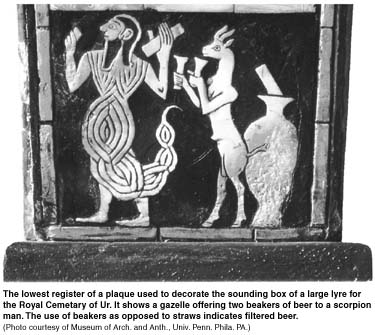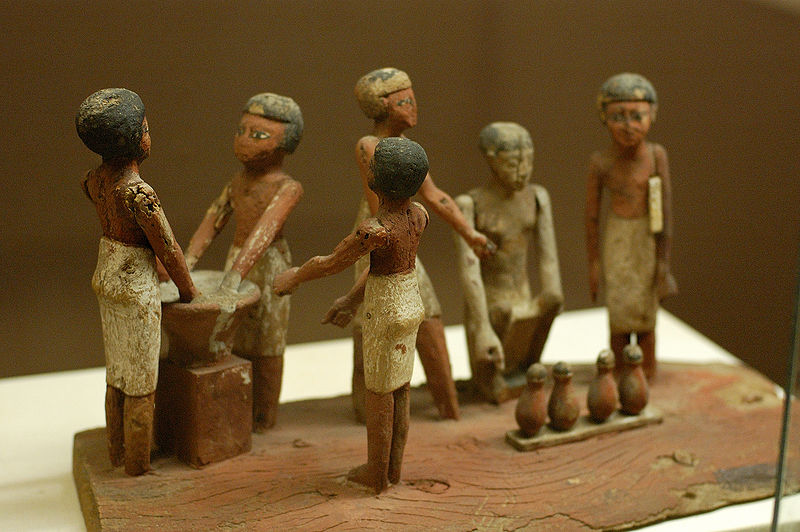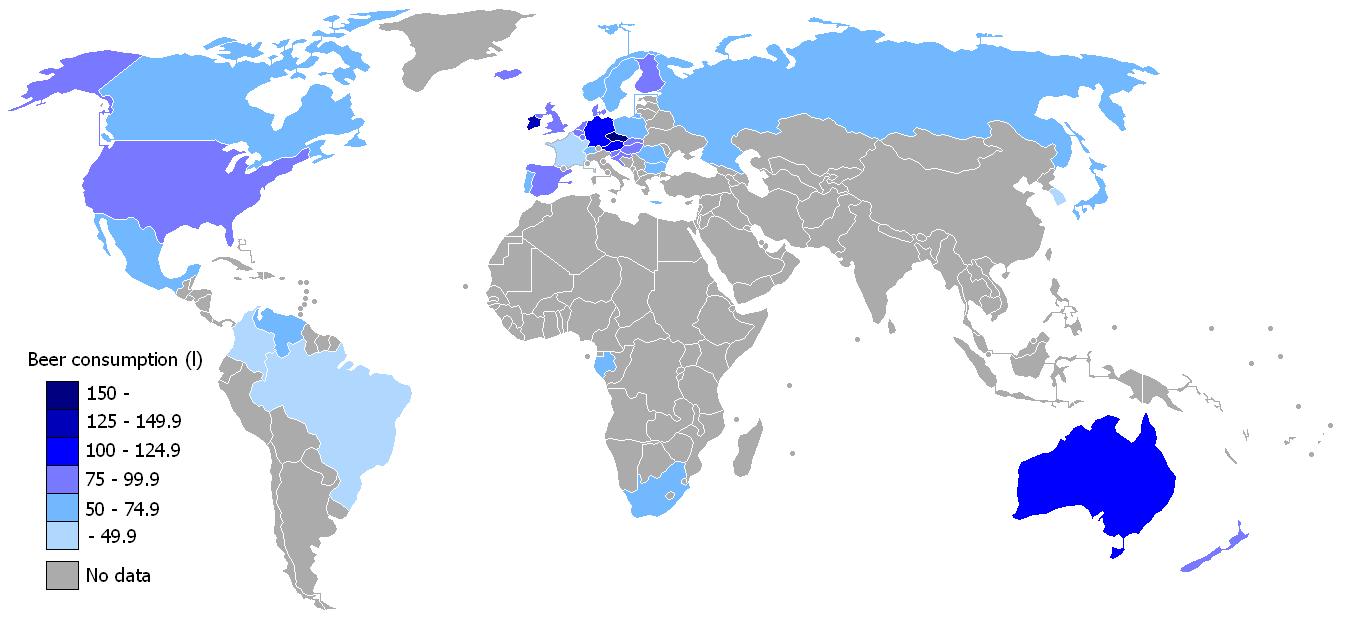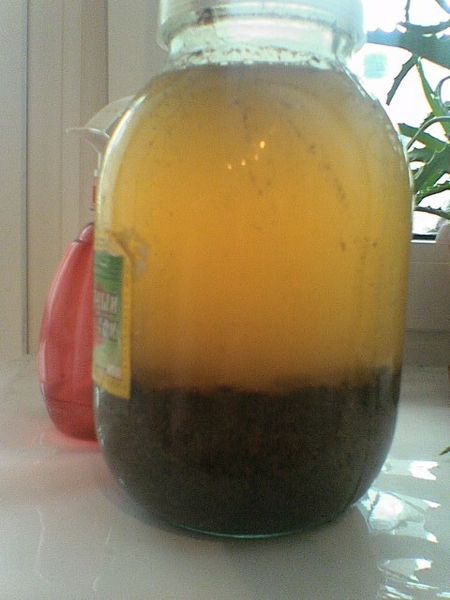It is thought that early mankind ceased to be nomadic and formed farming communities when it discovered grain around 9000 BC. Wild grain was nourishing, kept well, and could be selectively grown. Some authorities have suggested that early mankind may have been just as interested in grain in order to produce beer as it was in the production of primitive bread.
Professors Solomon Katz and Mary Voigt, bioanthropologists at the University of Pennsylvania’s Museum of Archeology and Anthropology, published an article in 1986 describing the “beer recipes” of ancient Sumeria, considered to be the site of mankind’s first truly civilized society (S.H. Katz and M.M. Voigt, “Bread and Beer: The Early Use of Cereals in the Human Diet,” Expeditions 28 (2), 23-34). These recipes are in the form of pictograms which show barley being made into loaves of bread which were then baked and crumbled into water to create a mash, which, in turn, fermented to produce an alcoholic beverage. More recently, archeological digs have uncovered even earlier evidence of beer making in several parts of ancient Mesopotamia and other areas of ancient civilization.
Beer is a generic term for any fermented beverage made from malted cereal grains. Malting is a process of allowing grain to soften in water and germinate before it is further processed by drying and/or roasting. Not only does malting make the grain relatively soluble, but it releases enzymes which convert starch into the sugar needed for fermentation. Early man discovered that wet grain could be dried out and still be used to make bread—and the bread would have tasted sweeter because the grain had been accidentally malted. Similarly, if loaves of malted bread were accidentally soaked in water, fermentation would occur. There is more than “a grain of truth” in all of this; indeed, the use of bread in brewing beer continues today in the production of Russian kvass, a rye beer.
In the beginning was bread, and the bread made beer – no wonder beer is sometimes called “liquid bread.” Beer probably wasn’t the beginning of civilization, but it was at least a close second—today, sales of beer are only third to those of coffee and tea and are four times that of wine. A summary of the debate about whether or not the earliest utilization of domesticated cereals may have been for beer rather than bread can be found at and, for a great time line summary of the history and geography of beer, see . Wikipedia, needless to say, also has a wealth of information on the subject. Cheers!






